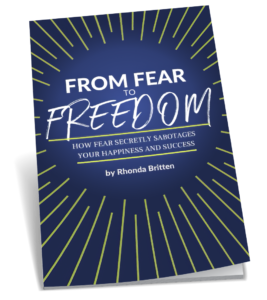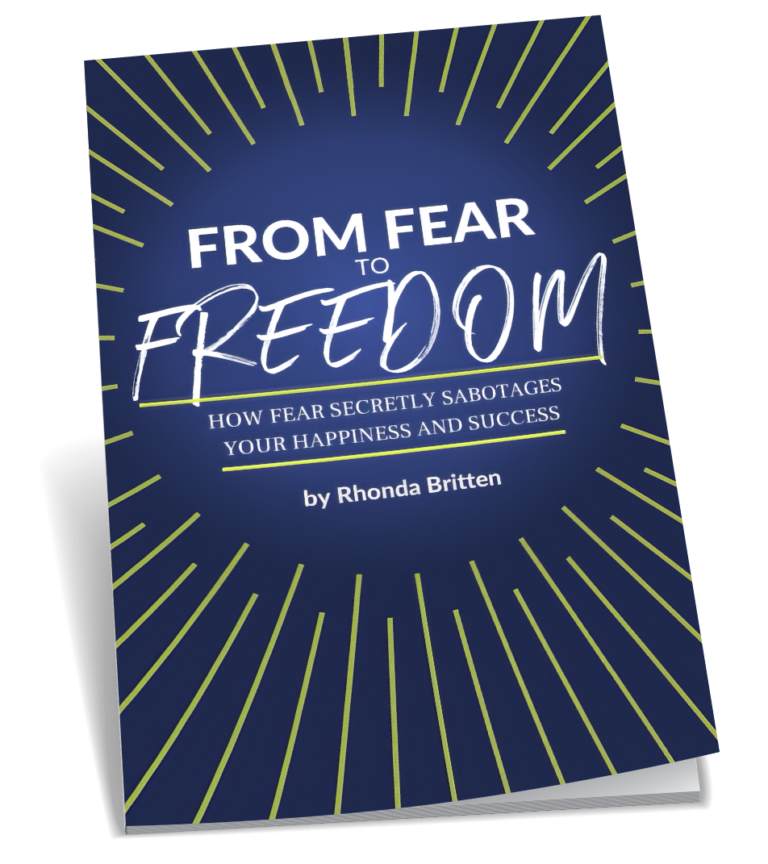I don’t need to sit here and tell you that being in a romantic relationship is hard. Building a lasting relationship and family life with another individual who has their own unique personality traits, needs, wants, and dreams takes a whole heck of a lot of empathy and compromise.
And compromise is often easier said than done. If you’re a type A personality with a win-or-lose mindset, you may feel that compromise is a lose-lose situation. But a healthy relationship is a true partnership; you work together. You’re on the same page. You accept and celebrate each other’s vulnerability. You’re a team. There is no winning or losing in a committed relationship because all of your wins and losses are shared.
But hey—I know it doesn’t always feel that way! 😅 Bickering happens. Arguments happen. That’s part of being human. You’re not perfect, and neither is your partner. But your shared humanness doesn’t mean your relationship is doomed. Far from it! There’s plenty you can do to become a better partner, as long as the actions you take to be a good partner do not interfere with your own boundaries, needs, and personal growth.
So, if you think your relationship could use a tune-up, you’ve come to the right place. Let’s dig into what makes a good life partner and how you can become a better partner to improve your relationship.

How to Be a Better Partner
1. Be Clear About Your Own Needs and Boundaries
If you’ve followed my work at all over the years, you know how much importance I place on boundaries. Boundaries are so, so, SO important to your emotional, spiritual, physical, and mental health. Personal boundaries are rules and guidelines you create surrounding the safe and permissible ways other people can interact with you.
Your boundaries help define and safeguard your identity. They protect you from the emotional exhaustion and burnout that comes from constantly bending over backward for others and putting everyone else’s needs ahead of your own.
Boundaries are essential in a relationship because, without them, you lose track of yourself. It’s hard to tell where you end and your partner begins. If you never voice your opinion, you’ll end up catering to your partner’s every whim and doing everything they want to do. Over time, this will lead to resentment and bitterness because your needs are constantly being denied.
But folks, here’s the thing: Have you been clear with your partner about your needs and boundaries?
Are you even aware of them, or have you been so caught up with people-pleasing that you’ve almost completely forgotten what your own needs and boundaries are?
I get it—I’ve been there too! (More times than I care to count!) My parents taught me it was selfish to have boundaries, so I grew up believing my partner’s needs were my needs. In order to have a fulfilling relationship, I thought I had to go along with everything my partner wanted. I was taught that to do otherwise was selfish—and is there a more dirty word in the English language than “selfish?”
It took me a long time to realize that boundaries are about the least selfish thing in the world; it’s actually more selfish to deny your partner the experience of getting to know the real you.
Your partner is not a mind reader, even if you sometimes wish they could be. The first step to becoming a better partner is identifying and then expressing your own needs and boundaries. Communicate openly and honestly with your partner about your own emotions and what you need from the relationship.
Need help identifying and developing your boundaries? Don’t worry; I have a whole article about it! When you’re done here, I encourage you to jump over to my guide: Why Personal Boundaries Are Important and How to Develop Them.
Boundaries are essential to any healthy relationship—but boundaries are a two-way street. It’s just as important to respect your partner’s boundaries, too.
2. Respect Your Partner's Boundaries
Equally as important as setting boundaries for yourself is respecting the boundaries set by your partner. Your partner's dreams, needs, and boundaries are just as important as your own. If you find you don’t know what your partner’s boundaries are, set some time aside for just the two of you to discuss the subject without any fear of judgment. After all, you’re not a mind reader either!
Ask your partner what they want or need from you. Give them time to think about it, and remember this is an open, friendly discussion meant to bring the both of you closer together. It’s not a test or an argument. It’s not about what either of you is doing wrong; it’s about your future together and making it as valuable and nurturing as possible for the both of you. Keep an open mind.
Once you know your partner’s needs and boundaries, do all that you can to respect and safeguard them. If you forget something, ask. If you make a mistake, ask for forgiveness and give them the space to forgive you in their own time.
I know forgiveness is rarely easy, which is why I have a guide about that, too. Read: How to Forgive Even When It Feels Impossible.
3. Communicate Openly and Honestly
So much of building strong relationships comes down to healthy communication. How many of your arguments have boiled down to simple misunderstandings or a lack of communication?
When you don’t communicate openly and honestly with your partner, they’re left to fill in the blanks. They don’t know what you want, so they make the decision for you. The opposite is true as well. If your partner doesn’t tell you what they want, you’re left to make the decisions yourself, which is a lot of pressure. Plus, if you make a decision they don’t like, you’re left to deal with their resentment, and it could leave you feeling like you can't do anything right.
Leave the guesswork for Jeopardy! Be open. Be honest. Be vulnerable. Encourage your partner to do the same. They’re your partner, after all; if you can’t be honest with each other, who can you be honest with?
Are you keeping secrets from your partner? And remember, there’s a big difference between privacy and secrecy in a relationship. Privacy has everything to do with maintaining your boundaries, and boundaries are healthy! But secrecy is all about fear.
Secrets are a big no-no in romantic relationships. Learn Why Keeping Secrets in a Relationship Is Harmful.
Trust and honesty are the most important parts of a relationship, so if you’re keeping secrets from your partner, ask yourself why. Why are you afraid to be honest with your partner? Are you afraid they’ll judge you? Are you afraid they’ll reject you if you’re honest? Are you afraid you’ll be left all alone?
I know it’s not easy, but if you want to be a better partner, and I bet you do, you must, must, MUST dig deep and ask yourself the tough questions. Your fear of open communication may be connected to trauma that you experienced in your past relationships. If this is the case, it’s something your partner needs to know about. If they don’t know, they can’t help you or respect your boundaries.
Secrets and lies (including lies of omission!) erode relationships. To be a better partner, you must communicate honestly and openly.
That said, if you’ve already communicated openly and your needs and boundaries are still not being respected, it could be that you’re in a toxic relationship. If this is the case, open communication may not be enough. Learn How to Move On From a Toxic Relationship and How to Know If You're in a One-Sided Relationship.
4. Actively Listen
Communication won’t do you any good if you’re not actually listening. How often do you look at your phone while your partner is trying to have a conversation with you? How often do you need to be reminded of things (because you weren’t really listening in the first place)? How often does your partner need to ask if you heard them because you’ve given them no indication you did?
Folks, there’s a huge difference between active listening and passive listening. Passive listening is nodding your head along to a conversation while you’re actually playing a game on your phone or trying to sort through a few work emails. You’re catching the odd word or phrase, but you’re more concerned with what you’re doing. Passive listening doesn’t require any effort or attention on your part. Passive listening makes your partner feel as though they should take their thoughts to their journal or talk to a wall instead.
Active listening is just the opposite. Active listening takes work. It means being present in the moment and really hearing what your partner has to say. Put away any distractions, make eye contact, and give them your full attention. Ask follow-up questions when appropriate, and be sure to acknowledge that you heard their message before responding with your own opinion. Repeat it back to them if necessary and ask follow-up questions to show you really heard them.
Active listening won’t only benefit your intimate relationships; it will help strengthen each of your relationships, whether they’re with your friends, family, coworkers, coaching clients, etc., so continue honing this skill!
5. Give Sincere Appreciation
If you’ve been with your partner for a long time, you know how easy it is to fall into the same old routine and take things for granted. For example, let’s say your partner does the cooking. They’ve always done the cooking. That’s their job. It becomes like clockwork. When you flip a light switch, the light comes on. When your alarm goes off, you wake up. When 6:30 pm rolls around, dinner is set in front of you. It’s just the way things work.
But wait! You’re not machines! You’re two human beings with needs, and recognition for a job well done is definitely something humans need on a regular basis.
Say thank you! Acknowledge your partner. If you don’t show that you appreciate or even notice all that your partner does for you, naturally, they’ll begin to feel invisible, which leads to resentment. They’ll start to wonder why they’re doing these things in the first place. They’ll start to feel more like your slave than your partner—and for good reason!
Show your partner you appreciate them by returning the favor. Maybe you can cook dinner one night a week or show them you appreciate their effort by doing the dishes.
Or start by offering a sincere “Thank you!” Never let your partner feel like they’re invisible. Show them you appreciate them by acknowledging all they do.
6. Spend Quality Time Together

Spending quality time together is the backbone of any good relationship. And there are so many different ways you can spend time together.
Shared interests are an obvious one, but you can also step outside of your comfort zone and try something new if your partner has an interest outside of your own.
Figure out what works best for both of you as a couple. If you feel really uncomfortable skiing and your partner loves it, don’t feel like you have to change who you are to be like them. Do what you can to try it and take a genuine interest in learning what they love so much about it. How can you find common ground if you discover it’s not for you?
You might go on a ski trip together, and while they hit the slopes, you stay in the cozy chalet reading your favorite book. Or you might go on a snowy hike instead of shooting down a ski hill. At the end of the day, you can come together to talk about your experiences and spend quality time together over a hot dinner.
It works the other way around too. If your partner doesn’t like one of your interests, don’t force it on them—but be specific about your needs. You might have a passion for gardening that they don’t understand. Instead of getting frustrated or allowing your thoughts to spiral into “Oh, they don’t understand me… we don’t have anything in common…,” help them understand why you care about gardening so much.
Be open about your passion and ask if they would be willing to help you with something specific. In return, what can you help them with?
No matter how young or old your relationship is, continue to look for new ways to spend time together. If you have very busy lives, as most people do, be intentional about setting time aside to spend together, even if it’s only a couple of hours each week.
7. Practice Self-Care and Self-Love
The last thing I’ll share is this: You can’t take care of other people if you don’t take care of yourself. To be a better partner, you must also prioritize your own happiness and personal wellness; no one can do it for you. If you’re not taking care of yourself, your mental health will suffer, which means the health of your relationship will suffer, too. Unhappiness is contagious!
You can’t take care of your partner, and they can’t take care of you if you’re not taking care of yourself.
If you don’t love yourself, you won’t be able to authentically receive your partner’s love. They may take your unhappiness with yourself as a sign you’re unhappy with them. And because they love you, they’ll bend over backward to try and make you happy until they burn themselves out or give up.
So I strongly encourage you to make time to practice acts of self-care, whether that’s going for a walk, reading a book, treating yourself to a mani/pedi, saturating your skin with your favorite smelling lotion, meditating, or doing anything and everything that sparks joy and helps you connect back to who you are.
You must make time to care for yourself and your mental health. Your mind, body, and soul need time and space to recharge. A car can’t drive without gas, and a heart can’t find space for self-love without self-care!
“Acts of self-care are acts of self-love.” - Rhonda Britten
In order to be a better partner, you must take care of yourself. You must choose to love and respect yourself. Caring for yourself and ensuring your needs are met will give you the strength, patience, and energy you need to build and maintain a lasting, fulfilling relationship.
Loving yourself is hard work, and the work is never done. I have so much to say about self-love—way too much to fit into this article. I encourage you to check out my guide on How To Love Yourself: 7 Self-Love Tips You’ll Love.
How Do I Become a Better Partner and Continue My Fearless Journey?
I’m glad you asked! You will become a better partner to yourself and your loved ones by focusing on your personal development and joining the Fearless Living community! It’s full of humans just like you who are seeking to build honest, strong relationships and live a life free from fear. The Fearless You membership is your complete toolkit to master fear and build unshakable confidence. The membership gives you access to ALL of my premium courses, live sessions, and time every month with myself and my coaches.
With Fearless Living, you’ll learn how to set clear boundaries, open up to loved ones, and reach your full potential. Catapult your confidence, reach new levels of intimacy and trust in your relationships, and begin living the life your soul intended™ within 30 days through Fearless You.
I don’t need to sit here and tell you that being in a romantic relationship is hard. Building a lasting relationship and family life with another individual who has their own unique personality traits, needs, wants, and dreams takes a whole heck of a lot of empathy and compromise.
And compromise is often easier said than done. If you’re a type A personality with a win-or-lose mindset, you may feel that compromise is a lose-lose situation. But a healthy relationship is a true partnership; you work together. You’re on the same page. You accept and celebrate each other’s vulnerability. You’re a team. There is no winning or losing in a committed relationship because all of your wins and losses are shared.
But hey—I know it doesn’t always feel that way! 😅 Bickering happens. Arguments happen. That’s part of being human. You’re not perfect, and neither is your partner. But your shared humanness doesn’t mean your relationship is doomed. Far from it! There’s plenty you can do to become a better partner, as long as the actions you take to be a good partner do not interfere with your own boundaries, needs, and personal growth.
So, if you think your relationship could use a tune-up, you’ve come to the right place. Let’s dig into what makes a good life partner and how you can become a better partner to improve your relationship.

How to Be a Better Partner
1. Be Clear About Your Own Needs and Boundaries
If you’ve followed my work at all over the years, you know how much importance I place on boundaries. Boundaries are so, so, SO important to your emotional, spiritual, physical, and mental health. Personal boundaries are rules and guidelines you create surrounding the safe and permissible ways other people can interact with you.
Your boundaries help define and safeguard your identity. They protect you from the emotional exhaustion and burnout that comes from constantly bending over backward for others and putting everyone else’s needs ahead of your own.
Boundaries are essential in a relationship because, without them, you lose track of yourself. It’s hard to tell where you end and your partner begins. If you never voice your opinion, you’ll end up catering to your partner’s every whim and doing everything they want to do. Over time, this will lead to resentment and bitterness because your needs are constantly being denied.
But folks, here’s the thing: Have you been clear with your partner about your needs and boundaries?
Are you even aware of them, or have you been so caught up with people-pleasing that you’ve almost completely forgotten what your own needs and boundaries are?
I get it—I’ve been there too! (More times than I care to count!) My parents taught me it was selfish to have boundaries, so I grew up believing my partner’s needs were my needs. In order to have a fulfilling relationship, I thought I had to go along with everything my partner wanted. I was taught that to do otherwise was selfish—and is there a more dirty word in the English language than “selfish?”
It took me a long time to realize that boundaries are about the least selfish thing in the world; it’s actually more selfish to deny your partner the experience of getting to know the real you.
Your partner is not a mind reader, even if you sometimes wish they could be. The first step to becoming a better partner is identifying and then expressing your own needs and boundaries. Communicate openly and honestly with your partner about your own emotions and what you need from the relationship.
Need help identifying and developing your boundaries? Don’t worry; I have a whole article about it! When you’re done here, I encourage you to jump over to my guide: Why Personal Boundaries Are Important and How to Develop Them.
Boundaries are essential to any healthy relationship—but boundaries are a two-way street. It’s just as important to respect your partner’s boundaries, too.
2. Respect Your Partner's Boundaries
Equally as important as setting boundaries for yourself is respecting the boundaries set by your partner. Your partner's dreams, needs, and boundaries are just as important as your own. If you find you don’t know what your partner’s boundaries are, set some time aside for just the two of you to discuss the subject without any fear of judgment. After all, you’re not a mind reader either!
Ask your partner what they want or need from you. Give them time to think about it, and remember this is an open, friendly discussion meant to bring the both of you closer together. It’s not a test or an argument. It’s not about what either of you is doing wrong; it’s about your future together and making it as valuable and nurturing as possible for the both of you. Keep an open mind.
Once you know your partner’s needs and boundaries, do all that you can to respect and safeguard them. If you forget something, ask. If you make a mistake, ask for forgiveness and give them the space to forgive you in their own time.
I know forgiveness is rarely easy, which is why I have a guide about that, too. Read: How to Forgive Even When It Feels Impossible.
3. Communicate Openly and Honestly
So much of building strong relationships comes down to healthy communication. How many of your arguments have boiled down to simple misunderstandings or a lack of communication?
When you don’t communicate openly and honestly with your partner, they’re left to fill in the blanks. They don’t know what you want, so they make the decision for you. The opposite is true as well. If your partner doesn’t tell you what they want, you’re left to make the decisions yourself, which is a lot of pressure. Plus, if you make a decision they don’t like, you’re left to deal with their resentment, and it could leave you feeling like you can't do anything right.
Leave the guesswork for Jeopardy! Be open. Be honest. Be vulnerable. Encourage your partner to do the same. They’re your partner, after all; if you can’t be honest with each other, who can you be honest with?
Are you keeping secrets from your partner? And remember, there’s a big difference between privacy and secrecy in a relationship. Privacy has everything to do with maintaining your boundaries, and boundaries are healthy! But secrecy is all about fear.
Secrets are a big no-no in romantic relationships. Learn Why Keeping Secrets in a Relationship Is Harmful.
Trust and honesty are the most important parts of a relationship, so if you’re keeping secrets from your partner, ask yourself why. Why are you afraid to be honest with your partner? Are you afraid they’ll judge you? Are you afraid they’ll reject you if you’re honest? Are you afraid you’ll be left all alone?
I know it’s not easy, but if you want to be a better partner, and I bet you do, you must, must, MUST dig deep and ask yourself the tough questions. Your fear of open communication may be connected to trauma that you experienced in your past relationships. If this is the case, it’s something your partner needs to know about. If they don’t know, they can’t help you or respect your boundaries.
Secrets and lies (including lies of omission!) erode relationships. To be a better partner, you must communicate honestly and openly.
That said, if you’ve already communicated openly and your needs and boundaries are still not being respected, it could be that you’re in a toxic relationship. If this is the case, open communication may not be enough. Learn How to Move On From a Toxic Relationship and How to Know If You're in a One-Sided Relationship.
4. Actively Listen
Communication won’t do you any good if you’re not actually listening. How often do you look at your phone while your partner is trying to have a conversation with you? How often do you need to be reminded of things (because you weren’t really listening in the first place)? How often does your partner need to ask if you heard them because you’ve given them no indication you did?
Folks, there’s a huge difference between active listening and passive listening. Passive listening is nodding your head along to a conversation while you’re actually playing a game on your phone or trying to sort through a few work emails. You’re catching the odd word or phrase, but you’re more concerned with what you’re doing. Passive listening doesn’t require any effort or attention on your part. Passive listening makes your partner feel as though they should take their thoughts to their journal or talk to a wall instead.
Active listening is just the opposite. Active listening takes work. It means being present in the moment and really hearing what your partner has to say. Put away any distractions, make eye contact, and give them your full attention. Ask follow-up questions when appropriate, and be sure to acknowledge that you heard their message before responding with your own opinion. Repeat it back to them if necessary and ask follow-up questions to show you really heard them.
Active listening won’t only benefit your intimate relationships; it will help strengthen each of your relationships, whether they’re with your friends, family, coworkers, coaching clients, etc., so continue honing this skill!
5. Give Sincere Appreciation
If you’ve been with your partner for a long time, you know how easy it is to fall into the same old routine and take things for granted. For example, let’s say your partner does the cooking. They’ve always done the cooking. That’s their job. It becomes like clockwork. When you flip a light switch, the light comes on. When your alarm goes off, you wake up. When 6:30 pm rolls around, dinner is set in front of you. It’s just the way things work.
But wait! You’re not machines! You’re two human beings with needs, and recognition for a job well done is definitely something humans need on a regular basis.
Say thank you! Acknowledge your partner. If you don’t show that you appreciate or even notice all that your partner does for you, naturally, they’ll begin to feel invisible, which leads to resentment. They’ll start to wonder why they’re doing these things in the first place. They’ll start to feel more like your slave than your partner—and for good reason!
Show your partner you appreciate them by returning the favor. Maybe you can cook dinner one night a week or show them you appreciate their effort by doing the dishes.
Or start by offering a sincere “Thank you!” Never let your partner feel like they’re invisible. Show them you appreciate them by acknowledging all they do.
6. Spend Quality Time Together

Spending quality time together is the backbone of any good relationship. And there are so many different ways you can spend time together.
Shared interests are an obvious one, but you can also step outside of your comfort zone and try something new if your partner has an interest outside of your own.
Figure out what works best for both of you as a couple. If you feel really uncomfortable skiing and your partner loves it, don’t feel like you have to change who you are to be like them. Do what you can to try it and take a genuine interest in learning what they love so much about it. How can you find common ground if you discover it’s not for you?
You might go on a ski trip together, and while they hit the slopes, you stay in the cozy chalet reading your favorite book. Or you might go on a snowy hike instead of shooting down a ski hill. At the end of the day, you can come together to talk about your experiences and spend quality time together over a hot dinner.
It works the other way around too. If your partner doesn’t like one of your interests, don’t force it on them—but be specific about your needs. You might have a passion for gardening that they don’t understand. Instead of getting frustrated or allowing your thoughts to spiral into “Oh, they don’t understand me… we don’t have anything in common…,” help them understand why you care about gardening so much.
Be open about your passion and ask if they would be willing to help you with something specific. In return, what can you help them with?
No matter how young or old your relationship is, continue to look for new ways to spend time together. If you have very busy lives, as most people do, be intentional about setting time aside to spend together, even if it’s only a couple of hours each week.
7. Practice Self-Care and Self-Love
The last thing I’ll share is this: You can’t take care of other people if you don’t take care of yourself. To be a better partner, you must also prioritize your own happiness and personal wellness; no one can do it for you. If you’re not taking care of yourself, your mental health will suffer, which means the health of your relationship will suffer, too. Unhappiness is contagious!
You can’t take care of your partner, and they can’t take care of you if you’re not taking care of yourself.
If you don’t love yourself, you won’t be able to authentically receive your partner’s love. They may take your unhappiness with yourself as a sign you’re unhappy with them. And because they love you, they’ll bend over backward to try and make you happy until they burn themselves out or give up.
So I strongly encourage you to make time to practice acts of self-care, whether that’s going for a walk, reading a book, treating yourself to a mani/pedi, saturating your skin with your favorite smelling lotion, meditating, or doing anything and everything that sparks joy and helps you connect back to who you are.
You must make time to care for yourself and your mental health. Your mind, body, and soul need time and space to recharge. A car can’t drive without gas, and a heart can’t find space for self-love without self-care!
“Acts of self-care are acts of self-love.” - Rhonda Britten
In order to be a better partner, you must take care of yourself. You must choose to love and respect yourself. Caring for yourself and ensuring your needs are met will give you the strength, patience, and energy you need to build and maintain a lasting, fulfilling relationship.
Loving yourself is hard work, and the work is never done. I have so much to say about self-love—way too much to fit into this article. I encourage you to check out my guide on How To Love Yourself: 7 Self-Love Tips You’ll Love.
How Do I Become a Better Partner and Continue My Fearless Journey?
I’m glad you asked! You will become a better partner to yourself and your loved ones by focusing on your personal development and joining the Fearless Living community! It’s full of humans just like you who are seeking to build honest, strong relationships and live a life free from fear. The Fearless You membership is your complete toolkit to master fear and build unshakable confidence. The membership gives you access to ALL of my premium courses, live sessions, and time every month with myself and my coaches.
With Fearless Living, you’ll learn how to set clear boundaries, open up to loved ones, and reach your full potential. Catapult your confidence, reach new levels of intimacy and trust in your relationships, and begin living the life your soul intended™ within 30 days through Fearless You.







